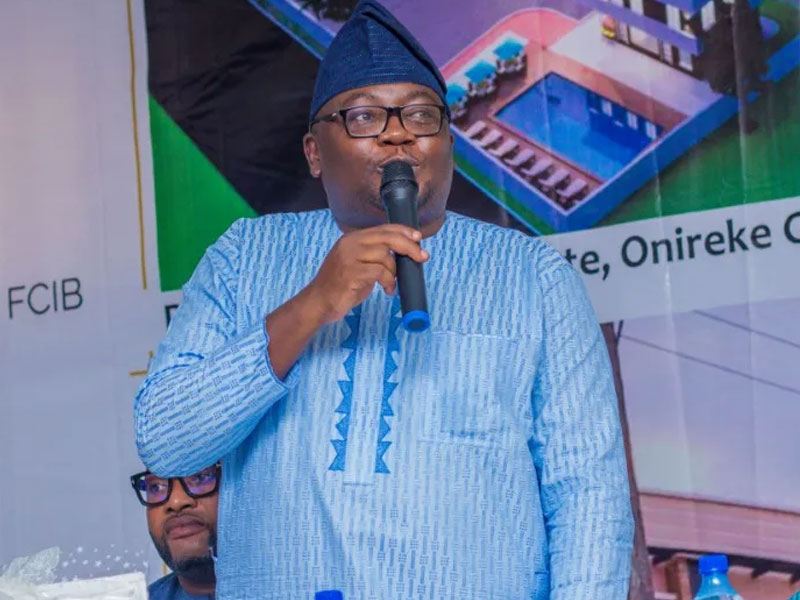
In a significant development, Chief Adebayo Adelabu, the Minister of Power in Nigeria, has highlighted the substantial financial investment required to attain the nation's ambitious target of expanding electricity generation capacity to 30,000 megawatts (MW) by 2030. Addressing the annual international strategic conference organized by the Association of Energy Correspondents of Nigeria (NAEC) in Lagos, Minister Adelabu stressed that Nigeria would necessitate investments amounting to approximately $262 billion to achieve this goal.
However, one key announcement from the minister was that the federal government would no longer provide sovereign guarantees in bilateral contracts between investors and organizations. This policy change indicates a shift in approach toward fostering a stronger partnership between the public and private sectors to address the critical issues hampering the growth of the power sector.
Minister Adelabu, represented at the event by Dr. Emmanuel Nosike, the Director of the Transmission Services Department at the Ministry of Power, underscored that the power sector has faced numerous challenges. These challenges have led to recurrent power outages, fluctuations in electricity generation, and, in some instances, complete grid collapses. Adelabu acknowledged that these issues have not only affected the reliability of the power supply but have also deterred potential investors.
The ambitious target set by the government is to generate approximately 30,000MW of electricity by 2030, with renewable energy contributing 30 percent to Nigeria's energy mix. To put this goal in context, Nigeria's current power sector infrastructure is currently inadequate to generate the necessary electricity for the nation effectively. As of now, Nigeria has a low power generation capacity of about 5,625MW, 8,500MW in transmission capacity, and 8,425MW in distribution capacity. These numbers fall significantly short of the targeted power generation capacity of 20,000MW in the short term.
Minister Adelabu expressed concerns about the power sector's poor performance, citing a variety of issues. These issues include insufficient generation capacity, transmission line tripping, vandalism of power infrastructure, high frequency due to low power demand, and aging infrastructure. He highlighted that the inadequate power generation in Nigeria is also due to outdated power plants, insufficient investment in new generation infrastructure, and an overreliance on fossil fuels, such as gas/steam and diesel.
The disruption in electricity supply is primarily attributed to sudden outages in the transmission lines, often caused by overloading, overheating of insulation, or faulty substation equipment. Additionally, vandalization of power infrastructure is a significant challenge in Nigeria's power network. Criminal elements intentionally damage power lines, transformers, and other equipment, resulting from limited surveillance and security measures on electrical infrastructure. High frequency, which results from low demand for power, leads to overgeneration and poses challenges, including the overloading of generators and transformers and loss of synchronization.
Ageing power network infrastructure, exceeding its expected lifespan, contributes to increased failure rates and reduced reliability, further exacerbated by inadequate maintenance and system upgrades. Minister Adelabu noted that these issues have far-reaching consequences on Nigeria's development and may deter potential investors.
To address these challenges, the minister emphasized the importance of collaboration between the government and the private sector in upgrading and modernizing the electricity transmission infrastructure. Furthermore, he highlighted the government's efforts to provide an enabling environment for attracting investment, including the recent approval of the Electricity Act 2023. This act allows states, private companies, and individuals to generate, transmit, and distribute electricity in Nigeria.
Moving forward, Minister Adelabu revealed that the federal government would no longer provide sovereign guarantees in bilateral contracts, signaling a shift toward greater accountability and responsibility between investors and organizations. Instead, contract financing will be encouraged between the investor and the organization, fostering a higher level of commitment to ensure project success.
In summary, the challenges facing Nigeria's power sector demand a collaborative effort between the public and private sectors, with the government working to create a more conducive environment for business operations in the power sector. Minister Adelabu's statements underscore the significance of addressing these challenges to meet Nigeria's ambitious electricity generation goals and attract potential investors.
Copyright © ENTREPRENEURSHIP DEVELOPMENT INSTITUTE 2015. All rights reserved.
Powered by: C.B.N